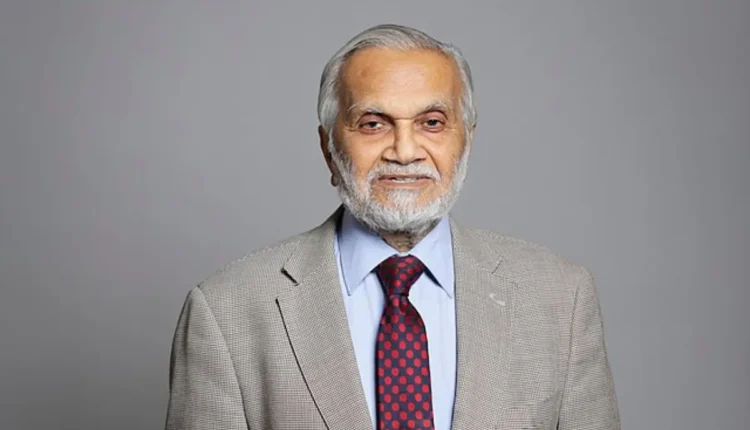Bhikhu Parekh, Baron Parekh, FBA FAcSS FRSA, stands as a luminary in the realms of political theory, multiculturalism, and social justice. Born on January 4, 1935, in the quaint village of Amalsad in Gujarat, India, Parekh’s journey from humble beginnings to becoming a life peer in the British House of Lords is nothing short of inspirational.
Early Life and Education of Bhikhu Parekh: Foundations of Brilliance
Parekh’s early life was marked by his father’s occupation as a goldsmith and the family’s modest educational background. Despite these humble beginnings, Parekh’s intellectual curiosity was evident from a young age.
At just 15, Bhikhu Parekh was admitted to the University of Bombay, where he earned a bachelor’s degree in 1954 and a master’s degree in 1956. His academic pursuits led him to the prestigious London School of Economics in 1959, where he completed his PhD in 1966.
Academic Career: Shaping Political Thought
Parekh’s academic journey began with teaching positions at the London School of Economics and the University of Glasgow. However, it was his tenure at the University of Hull that solidified his reputation as a distinguished scholar. From 1982 to 2001, he served as Professor of Political Theory, shaping the minds of countless students and contributing significantly to the field of political philosophy.
Bhikhu Parekh’s role extended beyond academia, serving as Vice-Chancellor at the Maharaja Sayajirao University of Baroda in India from 1981 to 1984 and holding the Centennial Professorship in the Centre for the Study of Global Governance at the London School of Economics.
Advocacy for Racial Equality: The Parekh Report
Bhikhu Parekh’s commitment to social justice and racial equality is most prominently reflected in his work with the Commission for Racial Equality, where he served as vice-chairman.
His most notable contribution came as Chairman of the Commission on the Future of Multi-Ethnic Britain from 1998 to 2000. The commission’s report, often referred to as the “Parekh Report,” became a foundational document for discussions on multiculturalism in the UK, influencing policies and sparking debates on the future of a diverse Britain.
House of Lords: A Life of Service
In recognition of his extensive contributions, Parekh was appointed a life peer on May 10, 2000, as Baron Parekh of Kingston upon Hull. As a member of the Labour Party, he has actively participated in legislative discussions, particularly those related to human rights and social equality.
From July 2001 to December 2003, Bhikhu Parekh was a member of the Joint Committee on Human Rights, advocating for policies that protect and promote the rights of all individuals.
Awards and Honours: Celebrating Excellence
Bhikhu Parekh’s contributions have been widely recognized and celebrated. He was elected a Fellow of the Royal Society of Arts (FRSA) in 1988 and a Fellow of the Academy of Social Sciences (FAcSS) in 1999. In 2003, he was elected a Fellow of the British Academy (FBA), the UK’s national academy for the humanities and social sciences.
His accolades include honorary doctorates from the University of Essex, the University of Hull, Nottingham Trent University, Edge Hill University, and the University of Bristol. In 2007, he was awarded the Padma Bhushan by the Government of India, one of the country’s highest civilian honors.

